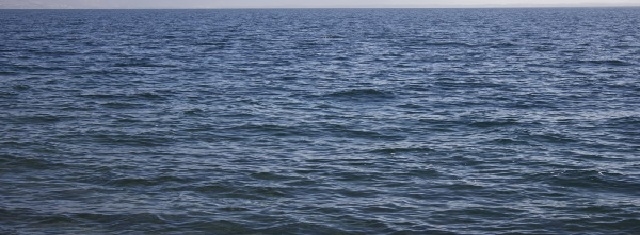Lifestyle
WWF s oceans work focuses on healthy and resilient marine ecosystems
Abundant biodiversity, sustainable livel

OCEAN
USPA NEWS -
Life began in the oceans. They are home to an estimated two million species, from the largest animal that has ever lived to the tiniest bacteria. Marine biodiversity far outweighs that on land. New species are found all the time, as scientists estimate that 91% of marine species...
Life began in the oceans. They are home to an estimated two million species, from the largest animal that has ever lived to the tiniest bacteria. Marine biodiversity far outweighs that on land. New species are found all the time, as scientists estimate that 91% of marine species have yet to be discovered, catalogued or described.
Covering 71% of our planet´s surface, oceans have shaped human history, culture and lives, and continue to do so. They are a life-support system for Earth and a global commons that provide us with free goods and services, from the food we eat to more than half of the oxygen we breathe.
Covering 71% of our planet´s surface, oceans have shaped human history, culture and lives, and continue to do so. They are a life-support system for Earth and a global commons that provide us with free goods and services, from the food we eat to more than half of the oxygen we breathe.
They are the foundation to the planetary water cycle that produces rain and snow; and are a source of food, feeding more than 1 billion people with their primary source of animal protein.
The oceans also regulate the global climate; mediate temperature, and drive the weather, determining rainfall, droughts and floods. They are the worlds´ largest store of carbon where an estimated 83% of the global carbon cycle is circulated through marine waters.
Sourc : WWF
Ruby BIRD
http://www.portfolio.uspa24.com/
Yasmina BEDDOU
http://www.yasmina-beddou.uspa24.com/
The oceans also regulate the global climate; mediate temperature, and drive the weather, determining rainfall, droughts and floods. They are the worlds´ largest store of carbon where an estimated 83% of the global carbon cycle is circulated through marine waters.
Sourc : WWF
Ruby BIRD
http://www.portfolio.uspa24.com/
Yasmina BEDDOU
http://www.yasmina-beddou.uspa24.com/
Ruby Bird Yasmina Beddou Ocean Wwf Work Healthy Resilient Marine Ecosystems Abundant Biodiversity Sustainable Livelihoods Thriving Economies Million Species Animal Lifeplanet Surface
Liability for this article lies with the author, who also holds the copyright. Editorial content from USPA may be quoted on other websites as long as the quote comprises no more than 5% of the entire text, is marked as such and the source is named (via hyperlink).






